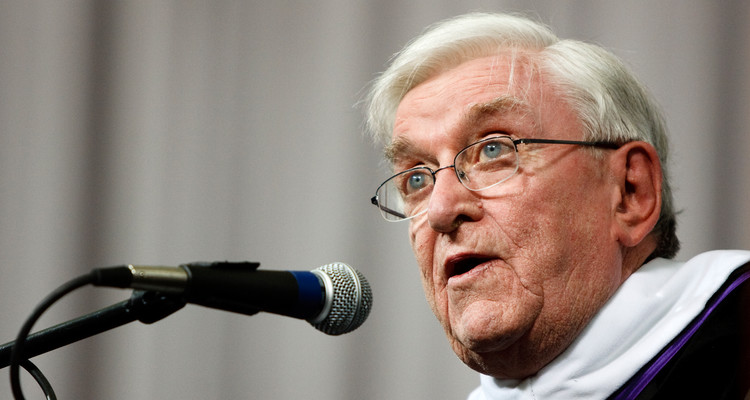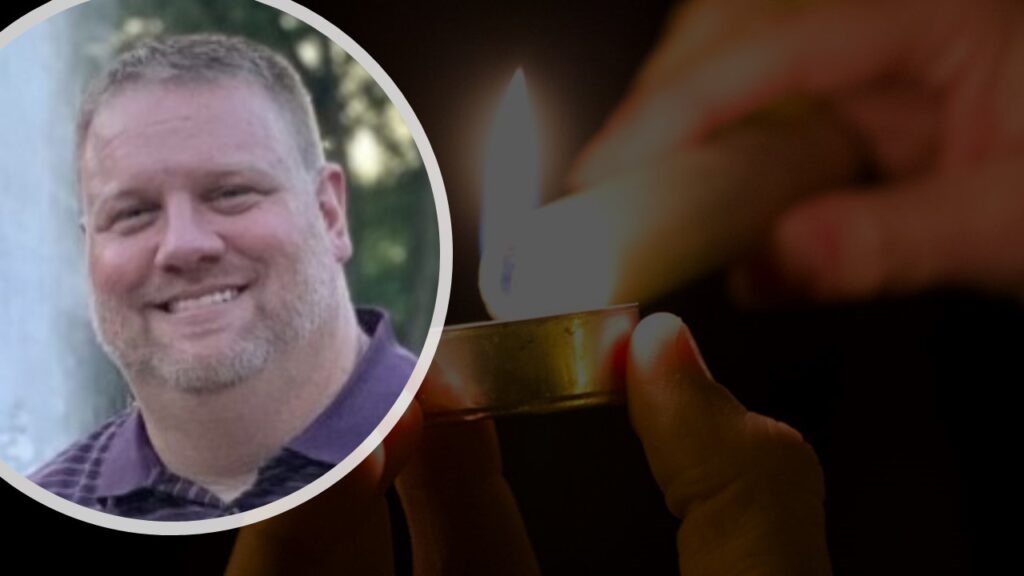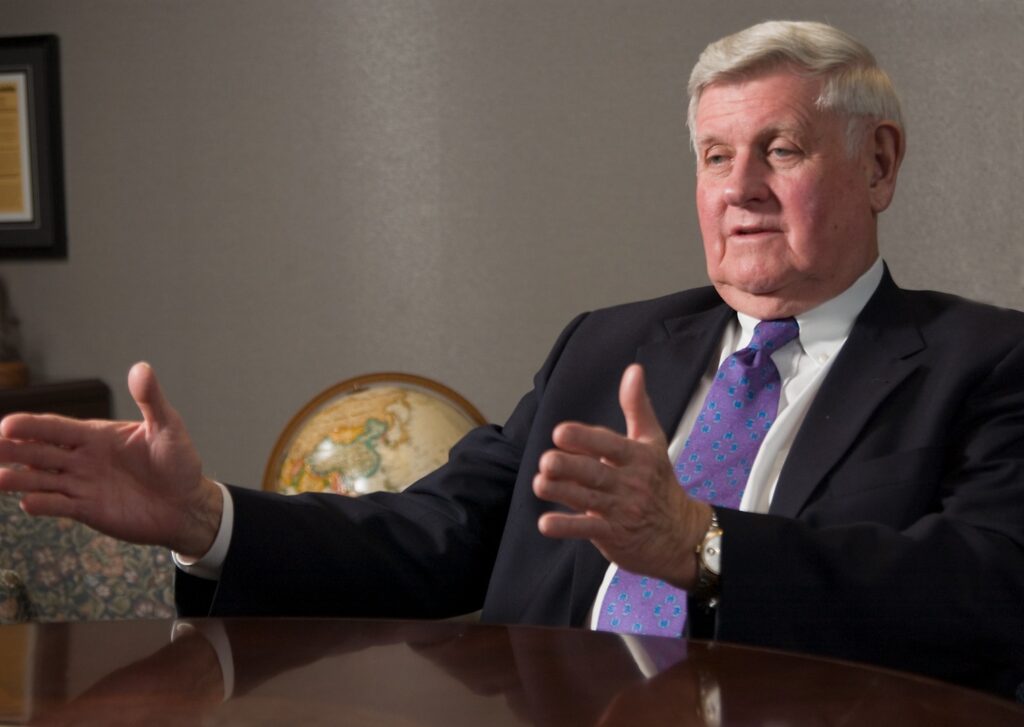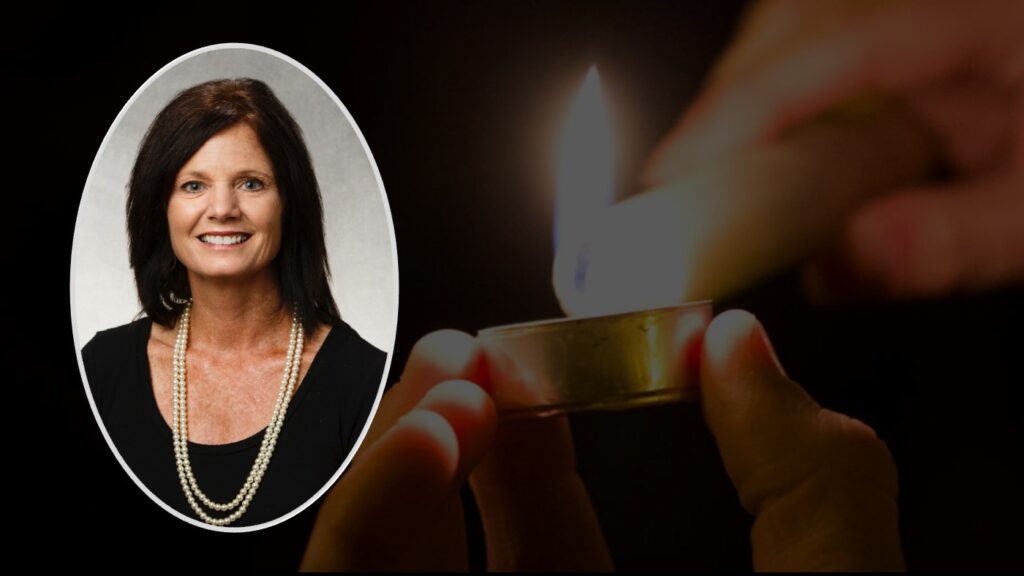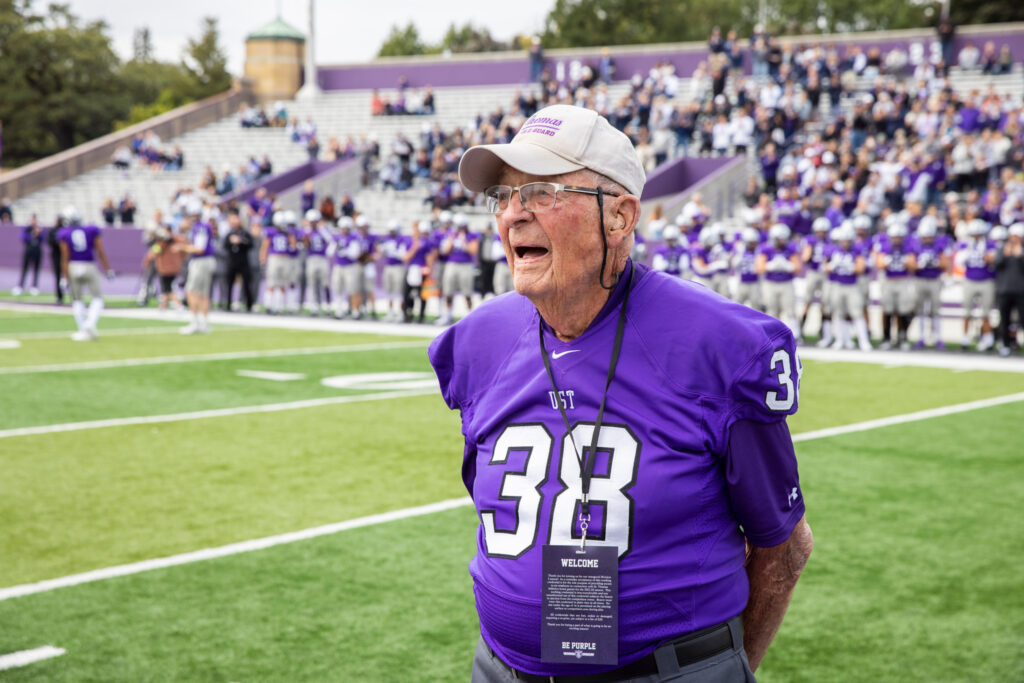Please remember in your prayers Father Marvin O’Connell, a former St. Thomas and Notre Dame history professor and the author of a biography on Archbishop John Ireland.
O’Connell died Friday in South Bend, Indiana. He was 86.
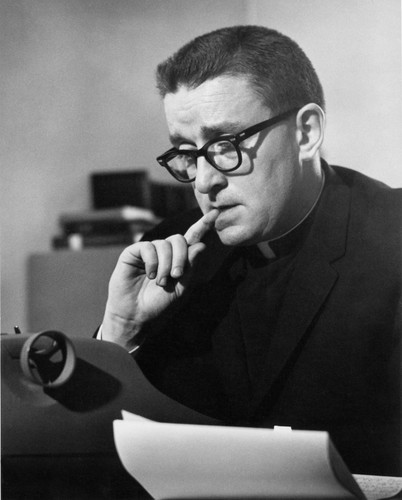
Father Marvin O'Connell in 1971
The St. Paul native was ordained from the St. Paul Seminary in 1956, received his doctorate in history from Notre Dame in 1959 and joined the St. Thomas faculty that year. His colleagues elected him Professor of the Year in 1971, at age 40, and the following year he joined the history faculty at Notre Dame. He served as department chair from 1974 to 1980 and directed the Notre Dame undergraduate program in London before retiring from the classroom in 1995.
O’Connell, though, never truly retired. He remained a prolific writer: an author, a columnist, a critic and, in the words of a book reviewer, “one of the finest storytellers of our day.”
St. Thomas conferred an honorary Doctor of Humane Letters degree on O’Connell in 2010, when he spoke at the undergraduate commencement exercise. The citation for the degree noted that critics long had found O’Connell’s writing to be “absorbing … engaging … grand … masterful … encyclopedic … extraordinary.”
The citation continued: “Such praise reflects appreciation from critics and readers alike for books ‘rich in stories of personalities, faith, struggle and triumph,’ as Minnesota History magazine once stated, and written ‘with the precision of a calligrapher and the lyrical voice of a librettist,’ as another journal remarked.”
O’Connell wrote a “Tracts for the Times” column in two-dozen American Catholic newspapers, including the Catholic Bulletin (now the Catholic Spirit) in the Twin Cities, from 1966 to 1972. His books included biographies on Ireland, the founder of St. Thomas, and on Father Edward Sorin, the founder of Notre Dame, as well as Pilgrims to the Northland: The Archdiocese of St. Paul, 1840-1962.
“There is not a dull page in the book … the work of a mature scholar at the height of his powers,” one critic wrote of O’Connell’s 1988 biography, John Ireland and the American Catholic Church. Another critic called the biography “a brilliant accomplishment … prodigiously researched and documented as well as captivatingly written.”
His history of the archdiocese was equally well-received, “a grand tale on a grand scale,” one reviewer wrote. O’Connell told stories about “men of energy, grace, vision, and not a little political skill; scoundrels and scalawags on a fluid frontier; and women religious who made possible the schools and hospitals that nurtured the faithful. … We see these real people, with personalities and passions and flaws.”
Dr. Scott Wright, a retired St. Thomas history professor, called O’Connell’s biography on Ireland and his history of the archdiocese “classics of local Catholic history.” Wright also appreciated one of O’Connell’s lesser-known books, the 1980 novel McElroy, based loosely on the life of former U.S. Sen. Eugene McCarthy, who taught sociology at St. Thomas from 1946 to 1948. Wright gave a paper on McElroy for an American Catholic Historical Association meeting in 2009.
Another retired St. Thomas history professor Dr. William Delehanty, said O’Connell “put a terrific amount of energy into teaching.” He captivated students in classes, Delehanty said, noting that he once overheard “one student ask another if he had seen Father Marvin do his rendition of Caesar.”
O’Connell had a “classical idea of history as a narrative, a story of people’s deeds and their consequences through time,” Delehanty said. “Such an approach remains for many of us the core of what history brings to education.”
Bradley Birzer, a Notre Dame alumnus and history professor at Hillsdale College in Michigan, called O’Connell “a fierce man, a fierce priest and a fierce professor” who loved to quote Winston Churchill. In an Aug. 20 tribute in the Catholic World Report, Birzer recalled a class during which O’Connell gave a full recitation of Churchill’s 1940 “Their Finest Hour” speech.
“I was fairly certain that Churchill was, in fact, standing in our classroom,” Birzer wrote. “Whatever it was, Father O’Connell cast a spell over the entire classroom. … When (he) finished, I looked around the room. There was nothing but stunned silence and a number of tears flowing from the eyes of his students.”
O’Connell’s other books included The Counter Reformation: 1558-1610; The Oxford Conspirators: A History of the Oxford Movement 1833-1845; Blaise Pascal: Reasons of the Heart; and Critics on Trial: An Introduction to the Catholic Modernist Crisis.
A Mass of Christian Burial was at 9:30 a.m. Wednesday, Aug. 24, in the Basilica of the Sacred Heart at Notre Dame. Visitation was from 4 to 6 p.m. Tuesday at Kaniewski Funeral Home in South Bend.
